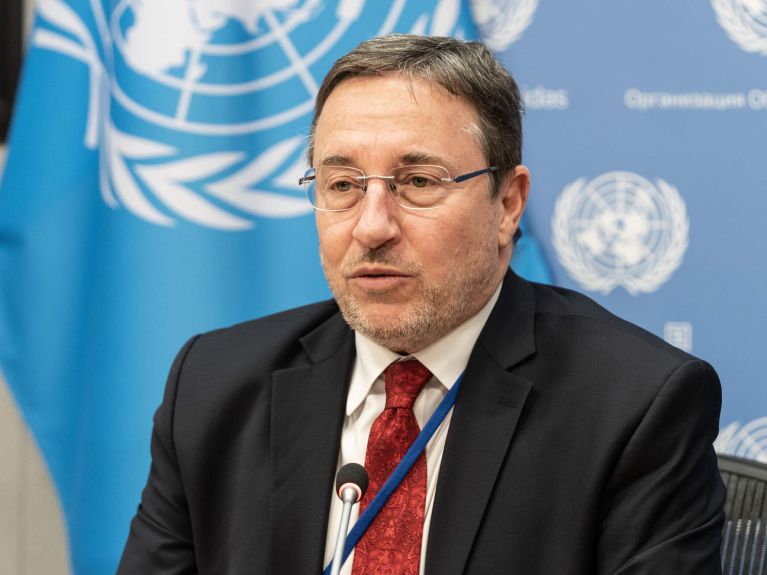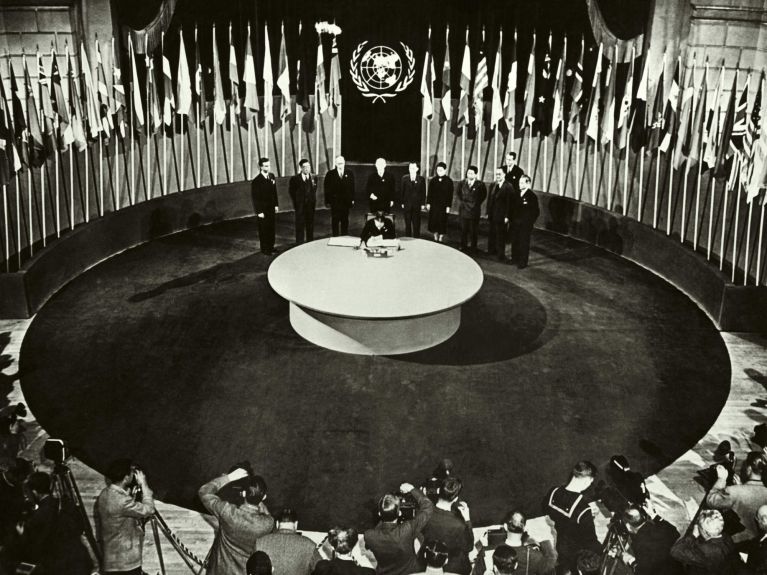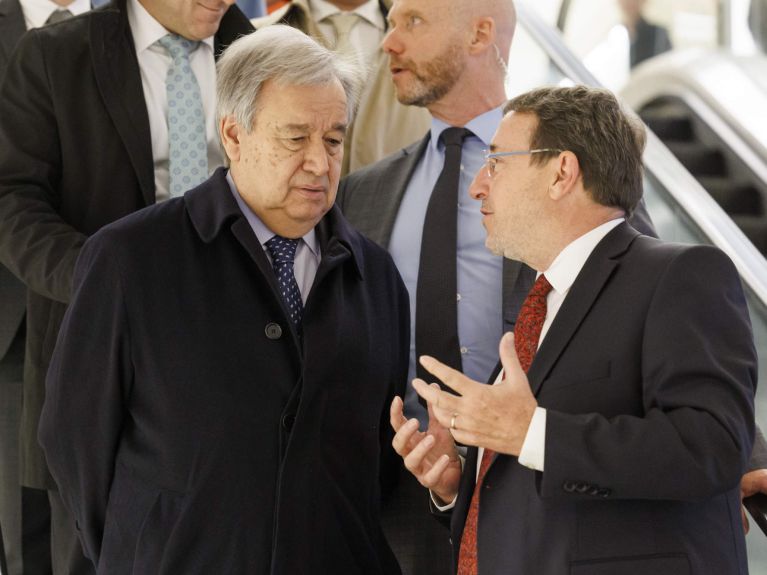“A new peak in tensions”
Achim Steiner, chief of the UNDP, talks about global crises and Germany’s role in the United Nations.

Mr Steiner, we are currently experiencing more conflicts than at any time since the Second World War. Which conflict are you especially concerned about?
It is true that there are problems in many places around the world at the moment; we are experiencing a new peak in tensions. A quarter of the world’s population live in countries or areas affected by some kind of conflict. And each one of them entails its own particular hardships, especially for those people concerned. So it is difficult to single out any one particularly bad conflict.
Many people in Europe tend to see the war in Ukraine as having especially serious consequences. Is that a rather one-sided view?
The war in Ukraine does of course have geopolitical and geoeconomic consequences that exponentially increase its negative effects. This encompasses everything from matters relating to energy and food security to a struggle for power and dominance that is reminiscent of the Cold War. That’s what makes this war particularly acute. What all conflicts have in common, however, is the fact that they prevent or even reverse development. Take Yemen, for example: After eight years of civil war, the situation is disastrous. We estimate that the country has been catapulted back by quarter of a century as a result.
Besides the many crises, democracies worldwide also find themselves under pressure. What are the consequences for your work?
That is something I personally find very lamentable because, like most people, I’d rather live in a democracy. But it would be overly simplistic to say that development has spawned successful democracies in some places and failed autocracies in others. Even in some very well-established democracies, recent years have seen some major setbacks, polarisation and indeed growing social injustice. On the other hand, some impressive advances have been achieved in some cases in less “free” systems.
It is not necessarily helpful to view everything in black and white. In our role as the United Nations, we are also committed to protecting human rights, but nonetheless often find ourselves having to work in places where the reality does not conform to the norms and conventions of the UN. Despite all the contradictions, the UN has been fighting for over 75 years to uphold the basic principles of the UN Charta and international law – be it with respect to refugees, the environment, children and young people, or disarmament.

Let us turn to the Sustainable Development Goals. A mid-term appraisal of the 2030 Agenda paints a sobering picture. Have the SDGs become less important in view of the real-world situation?
No. And incidentally, I believe that it is a big mistake to think like that. After all, the 17 SDGs that we adopted at the General Assembly in 2015 reflect the major risks of our time. And they would continue to exist even if we were to abandon the Sustainable Development Goals. They provide a good framework for all the world’s countries. I am convinced that they will remain just as relevant in the future.
Why is it that only 15 percent of the SDGs and sub-goals are on track so far?
The various wars and the coronavirus pandemic have set us back.
The SDGs were not on track even before the pandemic.
That’s true. Because many things were simply put off, and people waited too long before implementing them. Take the example of climate action. It has been clear and publicly known for around three decades that climate change is a threat that needs to be taken seriously. Yet fossil fuels are still highly subsidised and reached a new record in 2022 – partly of course because of the war in Ukraine.
Is there an area in which you are currently seeing progress?
Absolutely, there are several. Let me cite one example: Precisely as a result of the pandemic and the war in Ukraine, we are seeing exponential growth in investments in renewable energies that probably wouldn’t have been made that quickly otherwise. There is now a whole host of countries in the Global South that are making impressive advances: Uruguay meets 95 percent of its power consumption needs with renewable sources, while the figures for Kenya and Brazil are 92 and 70 percent respectively. In other words, these changes, these transitions, are now taking place. There was too much hesitation at first, however.

Germany is celebrating 50 years of UN membership in 2023. How would you describe Germany’s role in the UN?
Germany is an acknowledged partner in the United Nations, and one that can also be relied on in these times of crisis. For instance, the German government has stepped up its contributions to international development cooperation significantly in recent years and is now the second-biggest donor to the UNDP. All of this is seen and recognised.
Germany is an acknowledged partner in the United Nations, and one that can also be relied on in these times of crisis.
For some years, there have been repeated calls for Germany to assume more responsibility in the world. Do you share this view?
In my opinion, many rich industrialised countries should further expand their horizons. They are currently underestimating just how much the future of Europe for example depends on what happens in the rest of the world. This also means that even more has to be invested in international affairs. Donors overall are currently spending 0.36 percent of their gross domestic product on international cooperation. For decades, a figure of 0.7 percent has been demanded. Though Germany has been meeting this target of late, it failed to do so for many years. To this day, many other countries are not reaching this target. It is naive to think that we will be able to resolve the world’s problems with the kind of commitment shown so far and with this level of funding.

